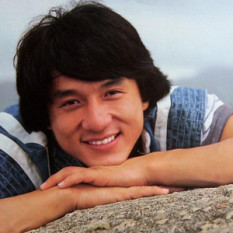C-pop is an abbreviation for Chinese popular music (simplified Chinese: 中文流行音乐; traditional Chinese: 中文流行音樂; Mandarin Pinyin: zhōngwén liúxíng yīnyuè; Jyutping: zung1man4 lau4hang4 jam1ngok6), a loosely defined musical genre by artists originating from mainland China, Hong Kong, and Taiwan. Others come from countries where the Chinese language is used by a large number of the population, such as Singapore and Malaysia. C-pop is sometimes used as an umbrella term covering not only Chinese pop but also R&B, ballads, Chinese rock, Chinese hip hop and Chinese ambient music, although Chinese rock branched off as a separate genre during the early 1990s.
There are currently three main subgenres within C-pop: Cantopop, Mandopop and Hokkien pop. The gap between cantopop and mandopop has been narrowing in the new millennium. Hokkien pop, though having its roots in Japanese enka, has been re-integrating into C-pop and narrowing its trend of development towards Mandopop.
From 1920 to 1949 "Chinese popular music" was used to describe all contemporary music sung in Chinese dialects in Shanghai. An important name was Li Jinhui. Buck Clayton is credited with bringing American jazz influence to China and the music gained popularity in hangout quarters of nightclubs and dancehalls of major cities in the 1920s. A number of privately run radio stations from the late 1920s to the 1950s played C-pop.[1]
Around the time of the Japanese invasion of Manchuria and the Chinese Civil War, pop music was seen as a leftist distraction. After the Second Sino-Japanese War and World War II C-pop has been marketed, produced and branded regionally. The Communist Party of China established the People's Republic of China in 1949. One of its first actions was to label the genre "Yellow Music" (the color is associated with pornography). The Shanghai pop music industry then took pop music to Hong Kong and in the 1970s developed cantopop. The Kuomintang, relocated to Taiwan, discouraged the native Taiwanese Hokkien from the 1950s to the late 1980s. As a result, mandopop became the dominant musical genre in Taiwan.
In 2000 EolAsia.com was founded as the first online C-pop music portal in Hong Kong. The company survived the dot-com bubble and offered online legal music downloads in February 2005, backed by EMI, Warner Music and Sony BMG.[2] It primarily targets consumers in Hong Kong and Macau: some songs require Hong Kong Identity Cards to purchase.
In August 2008 Norman Cheng, father of HK singer Ronald Cheng, acquired the remaining portion of EMI Music Asia when EMI, which had entered China in the early 20th century, withdrew from the Chinese market. Typhoon music made the purchase for an estimated HK$100 million.[3][4]
In February 2008 mainland China's top search engine Baidu.com was sued by local industry groups for providing music listening, broadcasting and downloading without approval.[5] Piracy continues to exist in China[6] but Google have since announced a cooperation deal offering free listening and genuine music copies. Top100.cn was founded by basketball star Yao Ming, agent Zhang Mingji and music insider Chen Ge via a 20 million yuan investment.[7] Google mp3 became available in March 2009.[8] The future of C-pop in mainland China is slowly emerging. However, the Chinese government's banning of the highly popular show Super Girl for one year in 2008 and 2012 still a very controversial for the mainland China market.[9] .
































